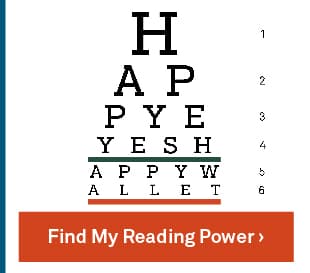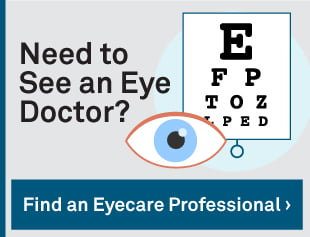Protecting your eyesight is critical as you age. There are several things you can do to naturally prevent vision loss and promote eye wellness.
Here are some basic tips for protecting your eyes:
1. Protect your eyes from UV Rays
Be sure to wear sunglasses that ensure full UV protection. Ultraviolet rays can severely damage your eyes, and protecting yourself from such damage can reduce the risk of vision problems that kill healthy eye cells. UV damage has been directly tied to cataracts and macular degeneration.
2. Maintain a healthy and balanced diet
Eating diets rich in antioxidents (fruits and green veggies) has been shown to reduce the risk of getting cataracts. Berries and cherries contain something called bioflavanoids that strengthen small blood vessels that help supply your eyes with oxygen and nutrients. Fish, which are rich in omega-3 fatty acids, can reduce the risk of macular degeneration. Your eyes need plenty of nutrients, so if your diet isnt providing them, you can look into supplementing with vitamins that supply adequate nutrition to maintain healthy eyes.
3. Quit smoking
People who smoke have a much greater chance of developing cataracts and macular degeneration. Smoking also contributes to vascular eye disease, which can harden the arteries and promote vision loss. Additionally, smoking decreases blood flow throughout the body and can damage the optic nerve, which results in rapid and irreversiable vision loss.
4. Exercise regularly
Recent studies suggest that daily exercise, like walking, can prevent vision degeneration by as much as 70%. Aerobic exercise that can aid in decreasing the pressure around your eyes can reduce the risk for glaucoma. If you dont exercise now, start with three 30 minute workouts a week.
5. Change your contacts regularly
Sleeping in two week disposables or contacts that are to be worn during the day can cause a breeding ground for infection. If you choose to sleep in your contacts, make sure they are designed for continuous wear and change them out according to your doctors instructions.
6. Get regular eye exams and be aware of your risk for eye disease
Early diagnosis of any eye disease issues will limit vision loss and preserve healthy eyesight, so regular visits to the eye doctor are important. Indicators like a family history of diabetes and high blood pressure can greatly affect your eyesight so be sure you know about your family’s medical history and share it with your eye doctor.
7. Be tested for diabetes and high blood pressure
Even without a family history of these conditions, it is possible to have the disease and be unaware. Both diabetes and high blood pressure can cause eye problems, and the earlier you are diagnosed, the earlier your eye doctor can work towards preventing any vision impairment.
8. Be aware and notice changes in vision
You should see your eye doctor immediately if you experience any changes in vision.
Things to look for:
+ Hazy Vision
+ Double Vision
+ Flashes of Light
+ Floaters
+ Eye Pain or Swelling
While these preventative measures dont guarantee 20/20 vision as you age, these basic healthy lifestyle tips, in combination with regular eye exams, will put you on the right path to maintaining vision and eye health. And stay informed! Research healthy eye info and other ways to protect your eyes naturally.
Other Resources:
Reading Glasses Shopper’s Eye Health Guide
Eight Ways to Protect Your Eyesight
WebMd’s “How to Keep Your Peepers in Sharp Shape”
Nutrition 101: Seven Ways to Protect Your Vision
Natural Eye Health: How to Protect Your EyesightProtecting your eyesight is critical as you age. There are several things you can do to naturally prevent vision loss and promote eye wellness. It is most important to be aware that there are several things you can do to keep your eyes well cared for.
Here are some basic tips for protecting your eyes:
1. Protect your eyes from UV Rays
Be sure to wear sunglasses that ensure full UV protection. Ultraviolet rays can severley damage your eyes and protecting yourself from such damage can reduce the risk vision problems that kill healthy eye cells. UV damage has been directly tied to cataracts and macular degeneration.
2. Maintain a healthy and balanced diet
Eating diets rich in antioxidents (fruits and green veggies) have been shown to reduce the risk of getting cataracts. Berries and cherries contain something called bioflavanoids that strengthen small blood vessels that help supply your eyes with oxygen and nutrients. Fish, which are rich in omega-3 fatty acids, can reduce the risk of macular degeneration. Your eyes need plenty of nutrients so if your diet isnt providing them you can look into supplementing with eye vitamins that supply adequate nutrition to maintain healthy eyes.
3. Quit smoking
People who smoke have a much greater chance of developing cataracts and macular degeneration. Smoking also contributes to vascular eye disease which can harden the arteries and promote vision loss. Additionally, because smoking decreases blood flow throughout the body and can damage the optic nerve which results in rapid and irreversiable vision loss.
4. Exercise Regularly
Recent studies suggest that daily exercise, like walking, can prevent vision degeneration by as much as 70%. Aerobic exercise can aid in decreasing the pressure around your eyes will can reduce the risk for glaucoma. If you dont exercise now, start with three 30 minute workouts a week.
5. Change your contacts Regularly
Sleeping in two week disposables or contacts that are to be worn during the day can cause a breeding ground for infection. If you choose to sleep in your contacts make sure they are designed for continuous wear and change them out according to your doctors instructions.
6. Get regular eye exams and be aware of your risk for eye disease.
Early diagnosis of any eye disease issues will limit vision loss and preserve healthy eyesight so regular visits to the eye doctor are important. Things like family history of diabetes and high blood pressure can greatly affect your eyesight so be sure you know about your families medical history and share it with your eye doctor.
7. Be tested for diabetes and high blood pressure
Even without a family history of these conditions it is possible to have the disease and be unaware. Both diabetes and high blood pressure can cause eye problems and the earlier you are diagnosed, the earlier your eye doctor can work towards preventing any vision impairment.
8. Be aware and notice changes in vision
For any changes in your vision you should see your eye doctor immediately.
Things to look for:
-
-
- Hazy Vision
- Double Vision
- Flashes of Light
- Floaters
- Eye Pain or Swelling
-





0 Comments